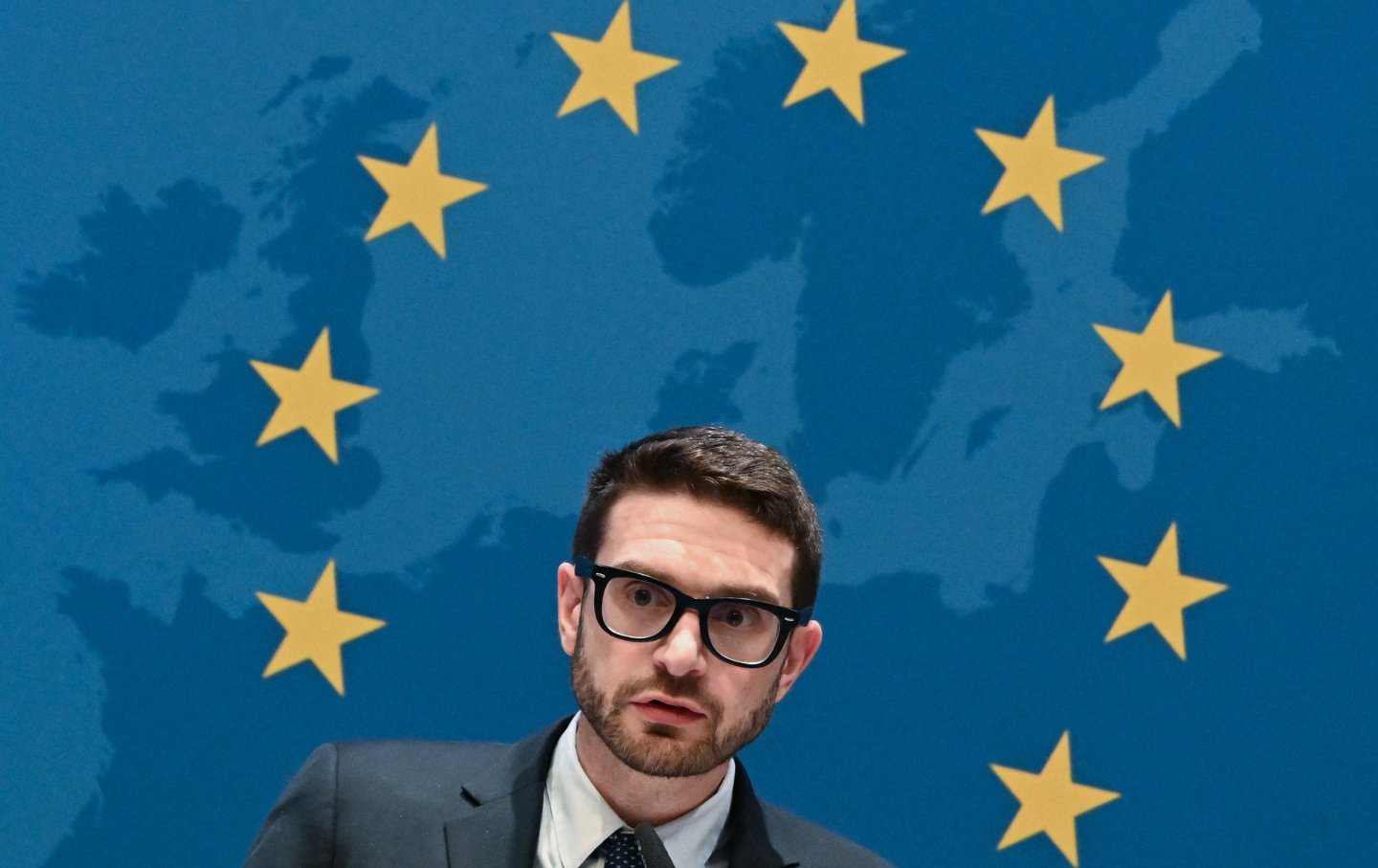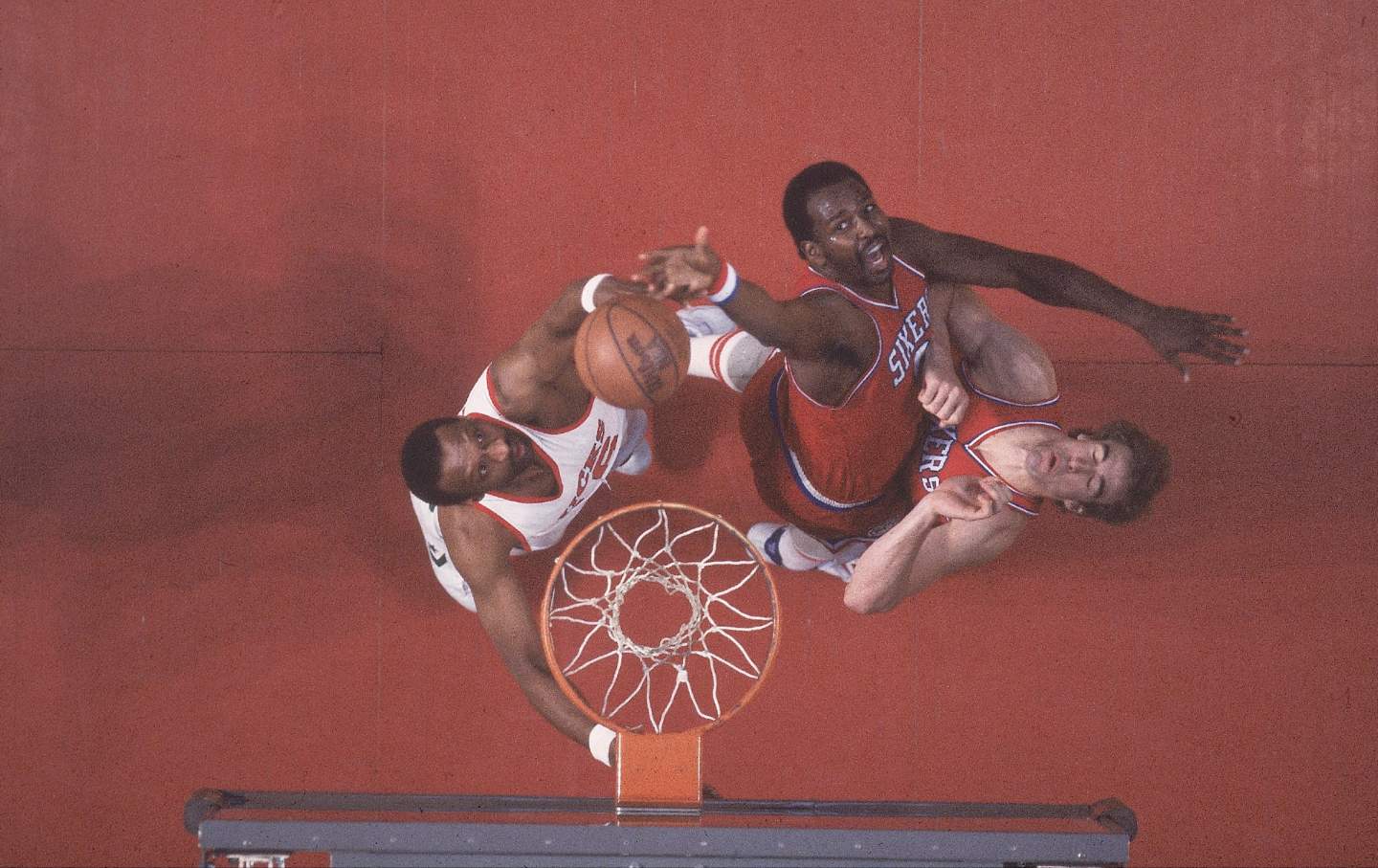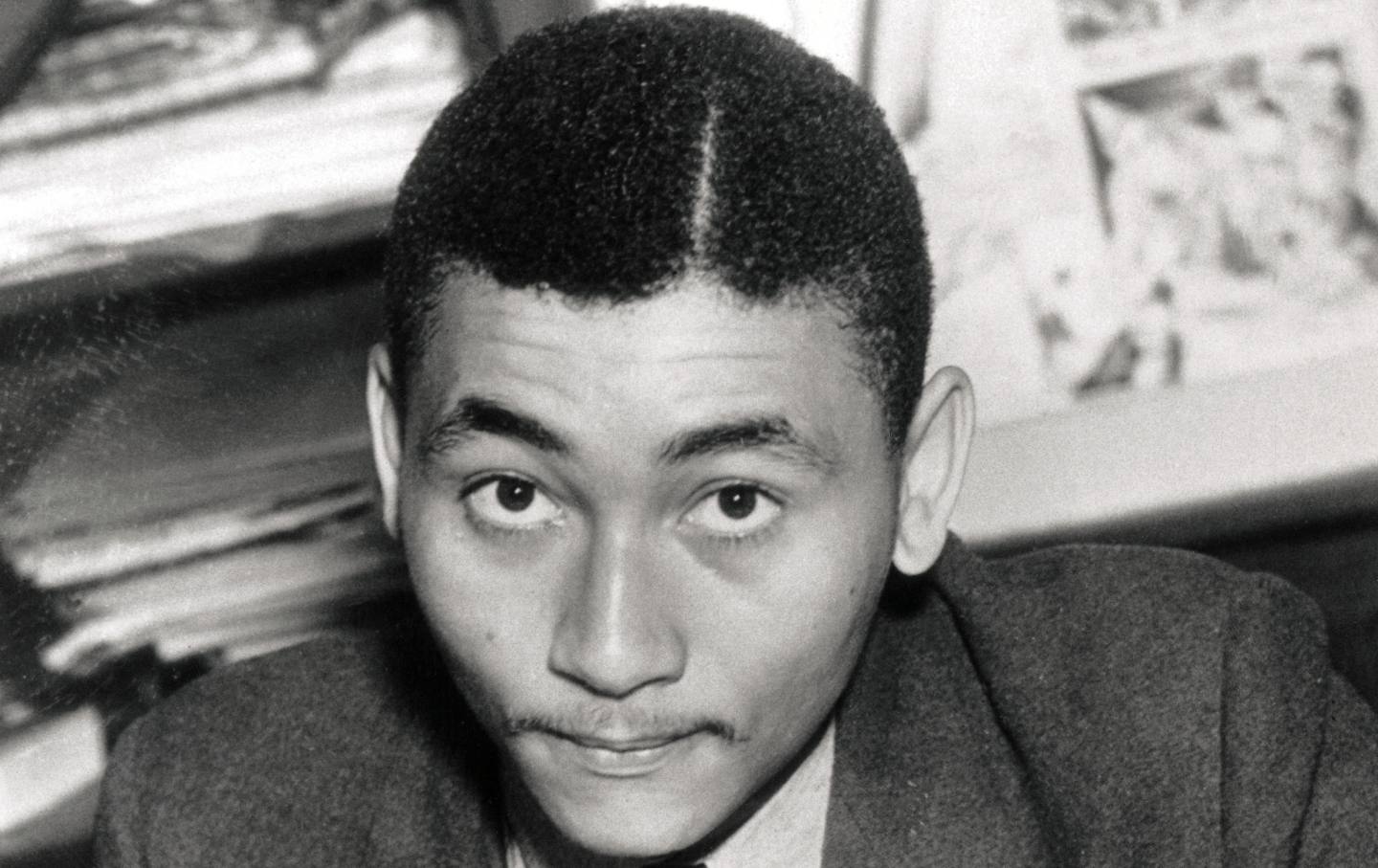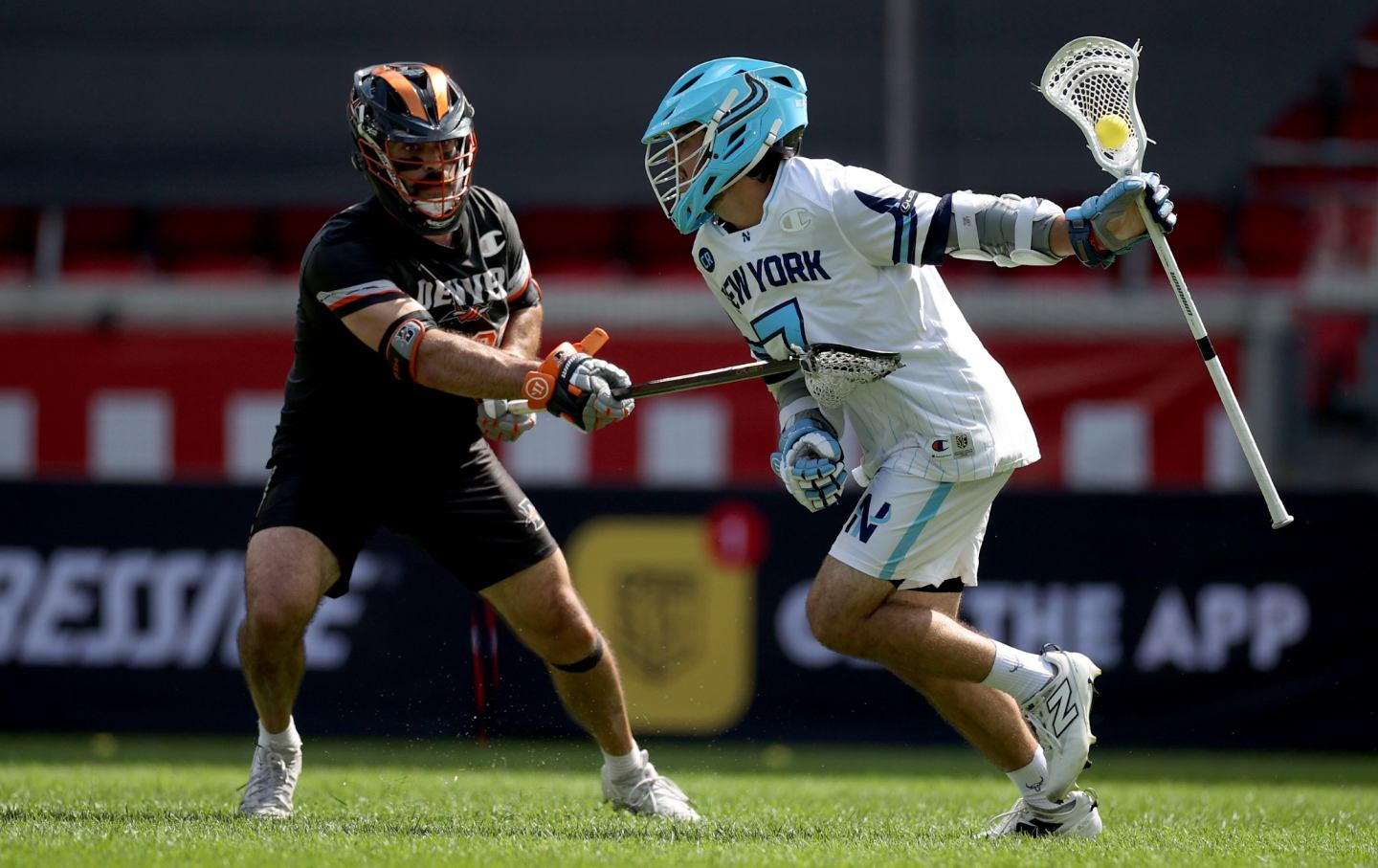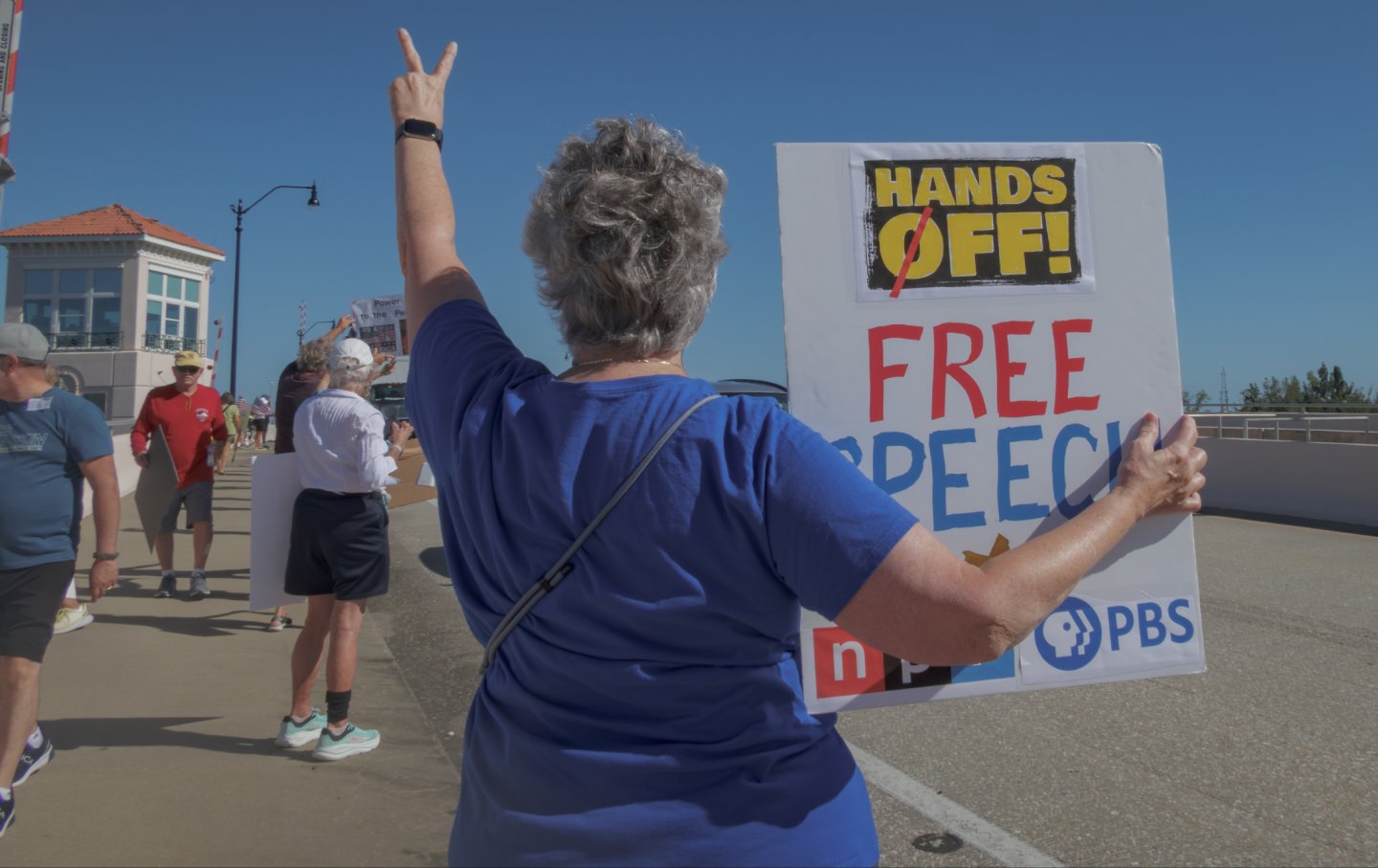From Mandela to Black Lives Matter—Plus, Haiti in September
On this episode of Start Making Sense, Gary Younge discusses Black writing and Black writers, and Amy Wilentz reports on the news from Port-au-Prince.

Here's where to find podcasts from The Nation. Political talk without the boring parts, featuring the writers, activists and artists who shape the news, from a progressive perspective.
Gary Younge, the award-winning former columnist for The Guardian, talks about Black writing and Black writers—and his own writing about Mandela, Obama, Travon Martin, and Claudette Colvin.
Also on this episode of Start Making Sense, the news from Haiti, where the UN, with US support, is authorizing a new security force. Made up of mostly Kenyan troops, it's supposed to restore “law and order” in Port-au-Prince. The Nation's Amy Wilentz is on the podcast to report.
Our Sponsors:
* Check out Avocado Green Mattress: https://avocadogreenmattress.com
Advertising Inquiries: https://redcircle.com/brands
Privacy & Opt-Out: https://redcircle.com/privacy
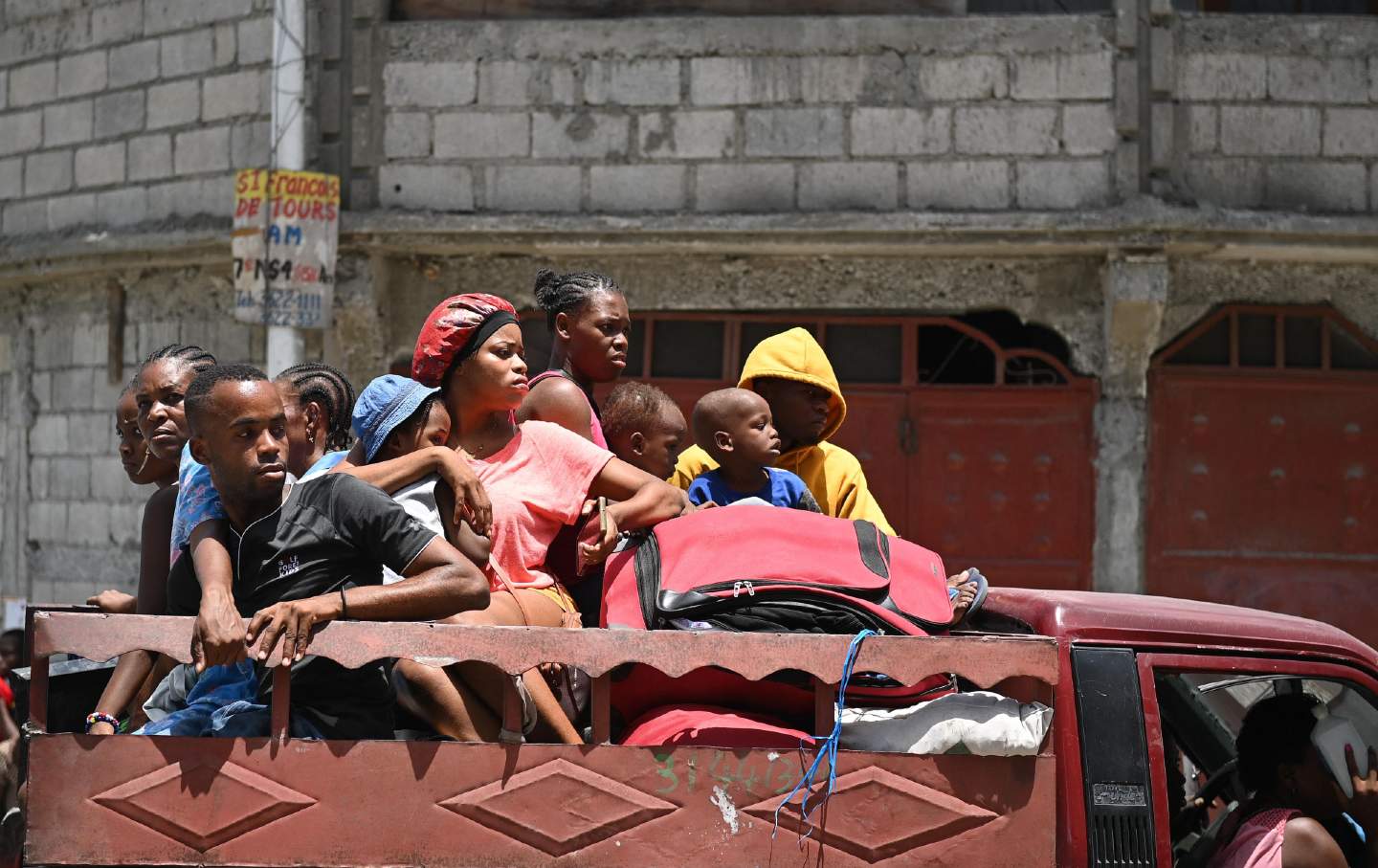
Residents evacuate Port-au-Prince, Haiti, as gang violence continues to plague the city.
(Richard Pierrin / AFP via Getty)Gary Younge, the award-winning former columnist for The Guardian, talks about Black writing and Black writers—and his own writing about Mandela, Obama, Travon Martin, and Claudette Colvin.
Also on this episode of Start Making Sense, the news from Haiti, where the UN, with US support, is authorizing a new security force. Made up of mostly Kenyan troops, it’s supposed to restore “law and order” in Port-au-Prince. The Nation’s Amy Wilentz is on the podcast to report.

Here's where to find podcasts from The Nation. Political talk without the boring parts, featuring the writers, activists and artists who shape the news, from a progressive perspective.
Republicans are about to end Obamcare subsidies, driving up premiums for 20 million people during the year of the midterm elections. How have they managed to end up after all these years with no health insurance plan of their own? John Nichols comments.
Also: Bob Dylan’s earliest recordings have just been released—the first is from 1956 when he was 15 years old—on the 8-CD set ‘Through the Open Window: The Bootleg Series vol. 18” – which ends in 1963, with his historic performance at Carnegie Hall. Sean Wilentz explains – he wrote the 120 page book that accompanies the release.
Our Sponsors:
* Check out Avocado Green Mattress: https://avocadogreenmattress.com
Advertising Inquiries: https://redcircle.com/brands
Privacy & Opt-Out: https://redcircle.com/privacy
Jon Wiener: From The Nation magazine, this is Start Making Sense. I’m Jon Wiener. Later in the show: the news from Haiti, where the UN, with US support, is authorizing a new security force, mostly Kenyan troops, to try to restore “law and order.” Amy Wilentz will report. But first: Gary Younge, the award-winning former columnist for The Guardian. That’s coming up, in a minute.
[BREAK]
Now it’s time to talk with Gary Younge about our politics from Nelson Mandela to Black Lives Matter. He’s a longtime Guardian reporter and columnist, now Professor of Sociology at The University of Manchester, a writer for The New York Review, a member of The Nation editorial board, and a Type Media Fellow – and this year, he was awarded the Orwell Prize. He’s written several books, including the unforgettable Another Day in The Death of America. It’s about 10 young people killed by guns on one day in America. Now he’s got a new book out. It’s called Dispatches from the Diaspora: From Nelson Mandela to Black Lives Matter. We reached him today at home in London. Gary Younge, welcome back.
Gary Younge: Thanks for having me.
JW: You open your new book on the morning of South Africa’s first democratic election, April 26, 1994. Where were you that morning and what were you doing there?
GY: I was in Soweto. I was staying with a family, and we were going to vote, and this was my big break. I was 25 when it happened. The day before, I had filed the piece that would get me my job, which was about following Mandela on his campaign trail in the first democratic elections in ’94, but I had yet to hear what they thought of the piece.
And so, I went to vote with the family, which was an incredibly – it was moving in ways that were less predictable. There was this mist on the ground that was kind of burning off. All you could see was people’s feet. It was very quiet. They knew it was going to be a long day. People were wearing their Sunday best. It was very quiet. One thinks of history being made in these big tumultuous firework-y kind of ways, but it was workaday history. ‘Let’s go make history.’
And then they lined up at the polls. I think our wait was about three, four hours, which wasn’t bad. And then when I got back, this is certainly before I had a cell phone, I managed to get a connection through a neighbor to log in. And then I see that my piece has gone down well at The Guardian, and I get these ‘attaboys’ and it goes up the chain to the editor. And kind of I just have this real feeling of relief that this thing that I’d been sent to do had been done.
JW: Had it been your ambition to be The Guardian correspondent in South Africa?
GY: No, it had actually been my ambition to be a correspondent in Moscow-that had been my ambition. I studied French and Russian at university. I was very interested in Russian history. So that hadn’t been my ambition. And even if it had been, I wouldn’t have imagined I would’ve got there so quickly. But I had been involved in anti-apartheid politics since the age of 15, 16. I’d picketed the South African embassy in London with my mom, age 17. And so to find myself with this ringside seat, I ended up kind of in the middle of Mandela’s entourage with his bodyguards for much of the campaign, just hanging out with his bodyguards. And so I was right up close, about as close as you can get without getting shot by his bodyguards really. And so to have that proximity, to be that young, to witness it in that way, I wouldn’t have even guessed that six months earlier.
JW: You say you were warned by mentors early on in your career not to become too identified as a writer on Black people. Looks like you did not take that advice.
GY: I did not take that advice. I thought that advice was well-meaning and odd. I did understand what they were saying. They would say, “You will be pigeonholed.” It was always in the passive voice. It was always somebody else was going to do it. Without even knowing it, they were saying that this is not a treasured category, Black people, and you are not from a treasured category. And so if you do this, people are going to think that’s all you can do. My feeling was twofold: firstly, is this because Black issues are covered so well by so many people that you don’t want another one? Is it because this is something I don’t write about well, or is this something else going on here? And then the other thing that people would often say is, if it wasn’t that, it was, “Just stick to the Black stuff. That’s all you can do.”
JW: So what’s your advice today to young Black writers who don’t want to write about being Black?
GY: My advice to young Black people is write about the things that you are passionate about. If that’s race, great. If it’s finance or fashion or travel or a sport, that’s great too. Because you know what? You’re still going to be Black. You’re still going to bring your race to it. You’re going to bring your experiences to it.
JW: One of the features of this book is your profiles of truly amazing people like Angela Davis and Maya Angelou. I think my favorite single piece in the whole book is about a person most people don’t even know about, Claudette Colvin. As a historian, I knew who she was, but the fact that you were able to find Claudette Colvin is kind of miraculous. But first of all, explain who she is, why she’s important, and why she’s been left out of a lot of Black history.
GY: Claudette Colvin, she’s literally a footnote in history.
JW: Before Rosa Parks was thrown off the bus–
GY: Exactly.
JW: Claudette Colvin was thrown off the bus.
GY: Now, Claudette was a 15-year-old girl in Montgomery, Alabama who’d been involved in campaigning work, who was thrown off the bus, and who they had started to go with, the movement had started to go with. She has letters saying, “We’re right there. We’re behind you.” She’s beginning to get known.
But Claudette is from the wrong part of town. She’s dark-skinned, she gets pregnant, she’s not married. And they decide, ‘You know what? We’ll wait. We’ll wait for the right person.’ And I remember during my first book, which is about tracing the root of the Freedom Riders, which I went on the route of the Freedom Riders on a Greyhound bus from DC to New Orleans reading these books and arriving in Montgomery, and Claudette kept coming up in these books. So I asked around. That was in ’97, and it took two years to kind of find her.
She was working as a nurse’s aide in the Bronx. And to interview her, it was a fascinating interview in which she said, “I don’t really blame them for not going with me. It would’ve been horrible. But they literally, well, not literally, but they just dropped me, and nobody would employ me because I was that girl who had done that. I couldn’t make any kind of comeback. And so they wrote me out.”
And I had a wonderful conversation with Claudette, and we got on very well. We went out for dinner. We got quite kind of togged up. We had a lovely evening as well as the interview. And it gave an opportunity to tell that story in a different way and to look at how we understand history, that you get this impression the way they tell the story of Rosa Parks, that God bless her, if she’d just had a better pair of shoes, there would’ve been no civil rights movement because she would have been fine standing up. And that the light of history just shone on this woman in this moment. You don’t learn that Rosa Parks was a feminist and an activist and someone who actually never believed in non-violence and that she had trouble with the male-dominated religious hierarchies in Montgomery at the time. You don’t really know any of it.
So she’s introduced by this history, too. And with Claudette, you really get a sense of this thing being a collective political struggle where the beneficiaries weren’t the people who did the boycotts, by and large. Of course, they were the beneficiaries in a range of ways. They got to sit where they want on a bus. It was the beginning of desegregation and so on. But the Black working class, and that’s how the piece ends, was her saying, “If you want to put it in a museum, give the victory to my children and my grandchildren. We still don’t have the things that we demanded.”
JW: Of course, one of the big things you covered in your years as Guardian correspondent in the United States was Obama’s election, Obama’s presidency. You say your son was born in 2007, the weekend when Obama declared his candidacy, and you say when your son was four, a white friend his age told him, “You are Black.” And he looked to you, and what did you tell him?
GY: I said, “Yeah, just like the president.” I tell that story because on the one hand, it speaks to the symbolic value that there was of having a Black president. But in that moment, it’s also true that the gap between Black and white was growing. That my son’s life chances, in terms of income, and in terms of wealth, in terms of education, and this white four-year-old’s life chances actually we’re growing further and further apart under Obama.
Now, some of that’s about the world that he inherited of course. He came in in the middle of a financial crash. We can talk about what the Republicans did and didn’t let him do, but ultimately it is not really possible to say beyond the symbolic value, which is important, that things got a whole lot better for Black people under Obama. Some good things happened, and it’s also, there’s no doubt that African-Americans felt better about being American with him in the White House, but materially the gap between Black and white, in a range of ways, grew. That’s a contradiction that one has to come to terms with.
JW: And another thing that happened during the Obama years, which you covered, was the killing of Trayvon Martin, 17 years old, killed in Florida in 2012, walking down the street. Obama said at the time, “if I had a son, he’d look like Trayvon.” Unforgettable line. You quote it in the book. What does it mean to you?
GY: Well, it’s true. No other president so far could say that. And it illustrates the limits of his symbolic value – that with Obama, you could prove that a Black man could be elected to the White House. With Trayvon, it was still clear that a Black boy, a teenager. could not walk down the street in his own neighborhood without fear of being murdered.
Obama said, “They will look at us differently if I win.” But I don’t think that George Zimmerman looked at Trayvon and thought, “Here comes a future president of America.” And so while they maybe looked at Obama differently, they didn’t really look at race and racism differently. And if we look at what comes after Obama in terms of Trump and where we are now, in a sense, his very existence in that job was provocation enough.
JW: You end your book with your last column for The Guardian, January 2020. It was four days after Trump’s attempted insurrection. A time in Britain, you write, “When racism, cynicism, and intolerance were on the rise.” The piece opens by recalling a time in the early seventies with you as a kid and your mother, barely 30, dancing you around the living room. What was that about?
GY: There’s a song by Bob and Marcia called Young, Gifted and Black. And my mom used to put my feet on hers and danced around and say, “Oh, they’re playing our song.”
My mom was from Barbados. She came to Britain in ’62. She was a nurse and she became a teacher. At that point in the early seventies, racism was on the rise, the economy was in the tank, and this was this kind of optimism, this kind of hopefulness that she had for us, which was like a natural resource, really.
And she would raise us with an understanding that, look, the world you are going to occupy, it doesn’t exist yet. The plans that they have for you in this world are inadequate for you. So you are going to have to create your own you, because the things that they have in store for you won’t do.
And there as an inevitability about it. And my mother died when she was 44 and I was 19, so she never saw. I was just ending my first year at university. But as I point out in that piece, that parental encouragement and the hard work that I did put in itself wouldn’t have been enough, that I was the beneficiary of a series of movements, uprisings in Britain during the mid-eighties, which prompted The Guardian to create a bursary scheme for journalists, which I got.
JW: Please explain for the Americans, what is a bursary scheme?
GY: Okay, so The Guardian, after the uprisings in the early and mid-eighties in British cities, racial uprisings, The Guardian decided that they were writing a lot about Black people, but there were none in any of the newsrooms. And so they decided to invest in six places each year for Black people to study at journalism college. There was no job at the end of it, but The Guardian is a charity owned by the Scott Trust. And so this was the Scott Trust saying this is a good thing that we think we should do.
And I was one of the first beneficiaries of that. There was the murder of a young man, Stephen Lawrence in Britain, which prompted the MacPherson Report. The MacPherson Report, an equivalent would be the Kerner Report in America following the uprisings in Newark and elsewhere. It was a landmark report which shifted the conversation about institutional racism.
The year that report comes out, that’s the year my book comes out. It’s the year I get my column. It’s the year Steve McQueen, who did 12 Years a Slave and Small Axe – that’s the year he wins the Turner Prize. It’s the year that White Teeth, Zadie Smith’s first novel, comes out. So I’ve been – as well as that parental support, as well as the effort, it needed these moments of collective struggle to actually create the space where I could write a book like this.
JW: Gary Younge: he’ll be talking about his new book Dispatches from the Diaspora in Manhattan at NYU on September 20th, in LA at USC on September 26th, and in Charleston on November 12th. Gary, thanks for talking with us today.
GY: Thanks, Jon.
[BREAK]
Jon Wiener: Now it’s time for the bad news about Haiti. That seems to be a regular feature of this broadcast. So we turn, of course, to Amy Wilentz. She’s written about the Middle East, California, and the Trump family, but she’s best known for her work on Haiti–most recently the award-winning book, Farewell, Fred Voodoo. She’s a longtime contributing editor at The Nation and the former Jerusalem Bureau Chief for The New Yorker. She’s also a 2020 Guggenheim fellow, and she teaches in the Literary Journalism program at UC Irvine. Amy, welcome back.
Amy Wilentz: Thank you, Jon.
JW: We always remind people at the outset why we care about Haiti: not just because it’s a desperately poor country. We care about Haiti because Haiti had the first slave revolution in the 1790’s, the largest slave uprising since Spartacus, inspired by the French Revolution, and it established the world’s first Black republic. It’s been punished by France and the United States pretty much ever since.
Right now, reports describe heavily armed criminal gangs in Port-au-Prince that have Haiti in the grip of extreme brutality. That’s the words of the UN relief chief there, with gang related violence continuing to force thousands from their homes and creating widespread suffering. The gangs are being challenged at some points by a citizen-led vigilante movement. What can you tell us about that?
AW: Well, that was a big deal about two months ago, when neighborhoods were threatened that had not felt threatened before by this gang violence, and people there organized themselves in brigades, neighborhood brigades, which is something that the gangs have claimed they are, but they don’t seem to be. They have expanded beyond neighborhoods. So these neighborhood brigades would capture people they thought were gang members, and more extreme violence ensued. Sometimes they were gang members, and for about a week after this movement began, the gang sort of laid low, moved back a little bit, retreated, but now they’re back and forth. It was predicted by most people that when the citizens movement began, the gangs would just reinforce themselves, and in anger and revenge, come forward much more strongly, and indeed, that is what happened. There are now more than 200,000 people who have been made internal refugees by these gangs.
JW: You write at thenation.com that despite the current disastrous situation in Haiti, plenty of money can be made by controlling Haiti. Please explain.
AW: Despite the current situation, and in fact, the current situation is one example of a fight over money, yeah, there’s so much money that can be made. We think of it as the poorest nation in the Western hemisphere because that is what is drummed into us by the news media, and believe me, Haitians get very incensed when they hear ‘poorest country in the hemisphere’. It just makes them tear their hair out, but it is a poor country, but with a lot of resources, and even in poverty, you can make money. So first of all, if you control one industry in Haiti, you can make money. So if you control all the cement in the country, that means you control all of the construction in the country, and therefore, it’s very lucrative, so there are fights over that kind of control.
The state is almost entirely privatized, so you can run communications networks and providers. You can run the state energy system. That’s one of the big fights at the heart of the battles that you’re seeing with the gangs. You can charge taxes at the ports if you run the ports, and at customs, and it goes right into your own pockets, not into the nation’s coffers. Similarly, the country’s formerly gigantic, freewheeling produce markets and meat markets. If you can tax those people at the opening to the market, you can make a huge amount of money.
The Duvalier dictatorship made a huge amount of money that way for themselves. You can import contraband like weapons and drugs and exact huge fees for the service. You can control mining in the countryside, which includes gold, silver, copper, and iridium. These are not huge mines like you see in the United States or Africa, but they produce very valuable ore. You can run the sugar business, the breweries. The lottery system is gigantic.
So these people have made a ton of money in Haiti, and these are some of the people who are running the gangs, and the top gangsters make money from these businessmen. It’s called in Haiti the business mafia, who run them, and the political mafia, you might call it that too, who work with the business people to control the country.
JW: Well, the news last week was that Kenya is volunteering to send forces to Haiti and that the United States is sponsoring a resolution at the UN to authorize that. They’re talking about a thousand Kenyan police officers who would try to restore law and order and protect key installations along with several hundred additional officers or soldiers from other Caribbean countries. A thousand seems to be not very many. In 1994, I read, the intervention force led by the United States had 21,000 soldiers. How did that work out?
AW: That didn’t work out so well because what you’re seeing now is partly the heritage from that moment, but a thousand Kenyan soldiers is like – it’s an embarrassing, face-saving move by the Biden administration to say, “We can keep deporting Haitian refugees into Haiti, which we’ve asked all American citizens to leave as soon as possible.” Literally, those words, “as soon as possible.” “But we can keep deporting Haitians into Haiti, and we’ll only send a thousand Kenyan troops to protect the Haitian population.” I mean, it’s ridiculous, and plus, the Kenyan police don’t have a great reputation. They’re not the most honorable, upright professional police in the world.
They may be great. Who knows? But they haven’t had a great record in Kenya. They’re responsible for a lot of human rights violations. One of the problems of the UN mission that sent the 20,000 or so peacekeeping troops into Haiti, was that they were responsible for all sorts of abuses, as well as keeping whatever peace was thought to be necessary by this same business mafia.
JW: U.S. officials, I’m reading from a news report now, say they are focused on not repeating the mistakes made in previous stabilization missions in Haiti. “The Biden administration does not want the multinational force to engage in constant firefights with the gangs, but rather, to ensure humanitarian aid can safely be sent to the nation.” Will that work?
AW: No. The gangs basically control the ports. There are some private, very contraband-y ports that the gangs maybe don’t control, but basically, they control all transit through the capital, going out and into the capital. They control some of the ports. You can’t move humanitarian aid.
They’ll take your truck away. They take trucks away. The problem is the gangs are really powerful now. That’s why the Biden administration doesn’t want to send people in. They could die.
They could be hanged like in Somalia. It’s a very big fear that it would look like Somalia, because these gangs have super assault weapons. They have now some tanks that they’ve carjacked from the Haitian National Police. They have the material to provide a very robust response to a multinational force, and so we’d rather send in the cannon fodder of a thousand Kenyan troops than try anything else, and we have not come up with any political solution that we can present to the Haitians as a plausible way out of this problem. We have been responsible for a lot of political solutions, most of them not good.
We have not just stepped away from the table. When we’ve participated at the table, we’ve participated basically, as far as I can see, on behalf of what is the continuing problem.
JW: The other news this week is that a Colombian ex-soldier pleaded guilty to conspiracy in the murder of Haitian President Jovenel Moise in 2021. This guy will cooperate with U.S. authorities may become a valuable witness against other defendants who go on trial. I understand there are now 11 people have who have been charged in Florida, Haiti, in and Colombia, in an FBI-led investigation. What’s your comment on that?
AW: I don’t have personal sources who told me the truth, but I feel like these people who are being charged and jailed – so there’s also a Haitian businessman who’s been given a life sentence in Miami for the killing of Jovenel Moise, not that he pulled the trigger himself, but that he was part of the plot. I feel like the more people who are put on trial for the assassination of Jovenel Moise, the farther away we’re getting from the mastermind of the assassination of Jovenel Moise. I feel like I worry about the U.S. government’s involvement in prosecuting the case because I worry that the prosecutors are protecting themselves in this case, and I worry that on the morning of Jovenel Moise’s assassination, when they shouted, “Everybody, step back. This is a DEA operation,” and we all laughed and said, “That’s just a coverup for a Haitian-led thing,” maybe there was some truth to that.
We just don’t know what it was, and these guys are going to give evidence to the U.S.. So I always say, it’s a little bit like when Schwarzenegger was accused of having assaulted various women during his campaign for the governorship of California, and he said, “When I am elected, I will look into this matter.” I worry about that. I worry about U.S. involvement at some level. I’m not talking about the Biden administration, obviously.
JW: So you’ve already referred to the Haiti Travel Advisory, the U.S. Department of State issued on July 27th, “Do not travel to Haiti due to kidnapping, crime, civil unrest, and a poor healthcare infrastructure.” Biden wants Americans to leave Haiti. What does he want Haitians in America to do?
AW: Go back. He wants them to go back, and at the border, they just rounded people up sometimes in shackles, or so I hear, and put them on planes and sent them back to Haiti.
JW: How many people has Biden sent back to Haiti?
AW: I think it’s 22,000. It’s lightened up recently. He stopped sending quite so many every month, but these people are often people who’ve flown into Brazil, somehow gotten the money to get an airplane ticket to Brazil, have worked in Brazil, have made some money, and have taken a trek with their families, their children, all the way to the border with Texas. They haven’t been in Haiti maybe for five years, 10 years, and then they get rounded up, as we’ve seen in the photographs, sometimes not in the most humanitarian ways, and put on planes and sent back to Haiti with that without so much as a by-your-leave or some kind of document saying why they were fleeing in the first place.
JW: So Biden has expelled over 20,000 Haitian refugees. How does that compare with Trump?
AW: Oh, it’s much more. It’s much more than the last three American presidents put together.
JW: Well, there’s one piece of Haiti news in the United States that’s not terrible. Harvard has a new president, Claudine Gay, a woman whose parents are immigrants from Haiti. A Haitian student at Harvard wrote in the Crimson, “For the first time, the president of Harvard University does not descend from generations of whiteness, but from the revolutionaries of Haiti who successfully won their freedom and stood as the largest challenge to the global colonial order.” Then, she wrote, “My mother has begun to speak of Claudine Gay as though she were a distant cousin.” What does this tell us?
AW: Well, it makes me so happy on so many levels, of course, and I love that Haitians are so fiercely nationalistic about this kind of thing. So Claudine Gay is a wonderful thing. Her cousin, Roxane Gay, is a very well-known writer in the United States about politics and feminism. I wanted to mention a couple of other Haitian Americans. So: Vladimir Duthiers, known as Vlad, is the anchor of CBS Morning News, extremely popular. Patrick Gaspard: his Haitian parents moved to New York when he was three. He’s the former ambassador to South Africa and the director, the former director of the White House Office of Political Affairs under Obama, and he’s now head of the Center for American Progress, a think tank in Washington. There is someone you may all have heard of, Naomi Osaka, who you think is Japanese, but actually for Haitians, she is Haitian, because her mother is half Haitian, so she’s Haitian. There’s Karine Jean-Pierre, whose parents were both Haitian, the White House spokeswoman, and Raoul Peck, the fabled documentary director, is also a Haitian, living in Paris now.
But what this speaks to, to me, is not only the enormous capacity of the Haitian nation, which is no surprise, but also the terrible brain drain that has really been sucking Haiti dry of its human capacity. Again, I have to find a little bit of fault with Biden, who is sending back 20,000 Haitian migrants, and then he’s also offering a special program to Haitians who have passports and a sponsor in the U.S., and have contacts in the U.S., to leave Haiti for the next two years if they can get their passports through the U.S. Consulate and get the okay. So while he’s sending back all these poor people who’ve just been struggling to get out of Haiti and out of the chaos, he’s sending word to Haitians of some means and some ability who’ve proven themselves already–to leave Haiti. That could be any of these people we just spoke about. Could be the parents of these wonderful Haitian contributors to American society. They could be contributing their abilities to Haiti in the future.
JW: Amy Wilentz: read her reporting and analysis about Haiti at thenation.com. Amy, thanks for talking with us today.
AW: You’re welcome, Jon.
Subscribe to The Nation to Support all of our podcasts
Disobey authoritarians, support The Nation
Over the past year you’ve read Nation writers like Elie Mystal, Kaveh Akbar, John Nichols, Joan Walsh, Bryce Covert, Dave Zirin, Jeet Heer, Michael T. Klare, Katha Pollitt, Amy Littlefield, Gregg Gonsalves, and Sasha Abramsky take on the Trump family’s corruption, set the record straight about Robert F. Kennedy Jr.’s catastrophic Make America Healthy Again movement, survey the fallout and human cost of the DOGE wrecking ball, anticipate the Supreme Court’s dangerous antidemocratic rulings, and amplify successful tactics of resistance on the streets and in Congress.
We publish these stories because when members of our communities are being abducted, household debt is climbing, and AI data centers are causing water and electricity shortages, we have a duty as journalists to do all we can to inform the public.
In 2026, our aim is to do more than ever before—but we need your support to make that happen.
Through December 31, a generous donor will match all donations up to $75,000. That means that your contribution will be doubled, dollar for dollar. If we hit the full match, we’ll be starting 2026 with $150,000 to invest in the stories that impact real people’s lives—the kinds of stories that billionaire-owned, corporate-backed outlets aren’t covering.
With your support, our team will publish major stories that the president and his allies won’t want you to read. We’ll cover the emerging military-tech industrial complex and matters of war, peace, and surveillance, as well as the affordability crisis, hunger, housing, healthcare, the environment, attacks on reproductive rights, and much more. At the same time, we’ll imagine alternatives to Trumpian rule and uplift efforts to create a better world, here and now.
While your gift has twice the impact, I’m asking you to support The Nation with a donation today. You’ll empower the journalists, editors, and fact-checkers best equipped to hold this authoritarian administration to account.
I hope you won’t miss this moment—donate to The Nation today.
Onward,
Katrina vanden Heuvel
Editor and publisher, The Nation

